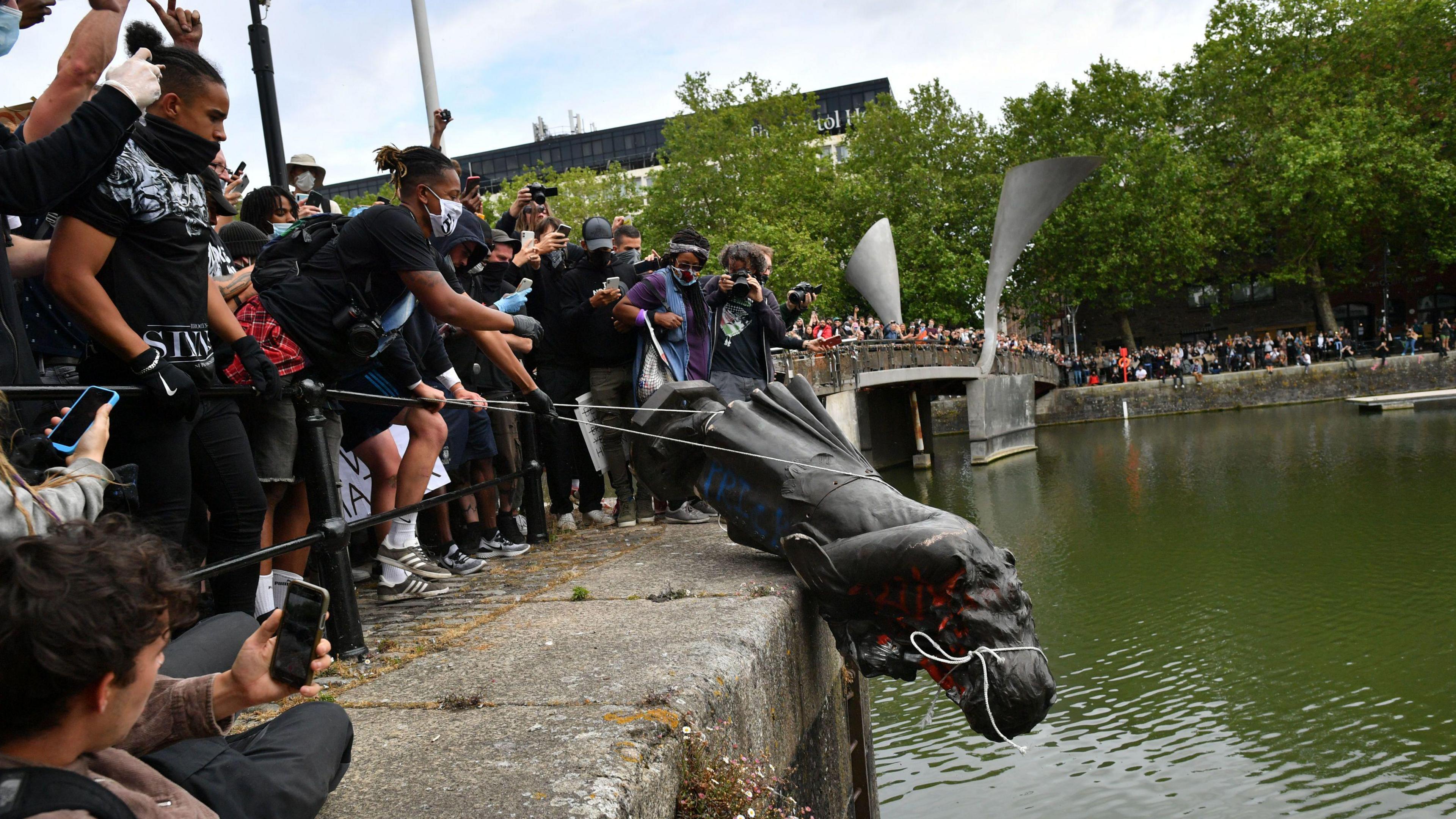Colston plaque wording approved by council
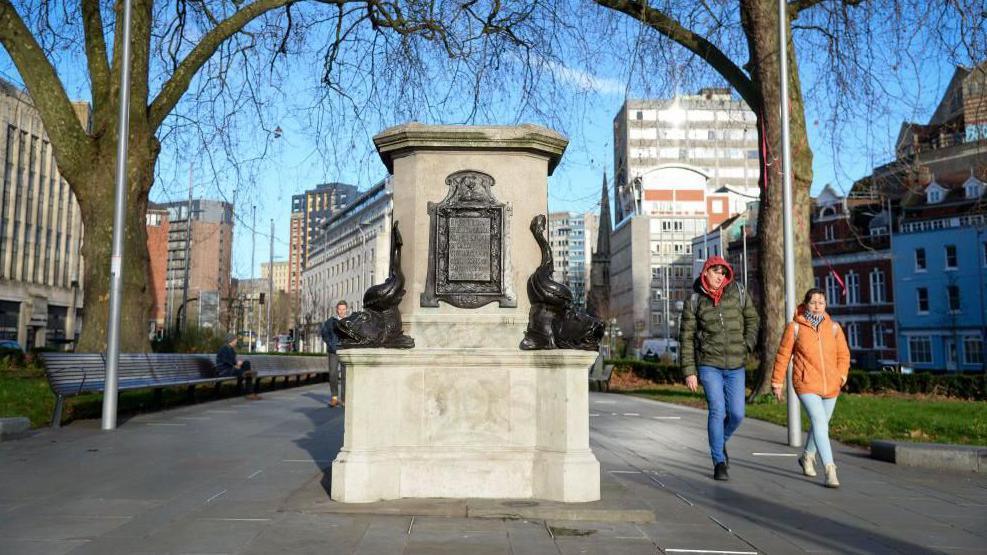
The plinth has been largely empty since the Colston statue was torn down
- Published
New wording has been agreed for a plaque on the plinth where a controversial slave trader's statue once stood.
Protesters tore down the statue of Edward Colston in Bristol on 7 June 2020 and threw it into the harbour.
Bristol City Council's development control committee voted 7-1 in favour of the revised wording on the empty plinth, with Conservative councillor Richard Eddy voting against.
He said the change, which removes mention of Colston as a "city benefactor" was an "utterly shameful" omission.
Mr Eddy said in the committee meeting: “Deleting the reference to Edward Colston, one of Bristol’s greatest sons, being a benefactor is outrageous – an utterly historical revision that is worthy of the Nazis.
“In my view and in the view of most Bristolians I’ve spoken to, the events of June 7 2020 are a stain and shameful on Bristol’s long past.
“We saw a mob of criminals and hooligans vandalise a protected monument, which we as the local planning authority should have been protecting."
Opposition councillors pointed out to Mr Eddy that Edward Colston's fortune came from "forced transportation of 84,000 slaves, almost 20,000 of whom died", the Local Democracy Reporting Service said.
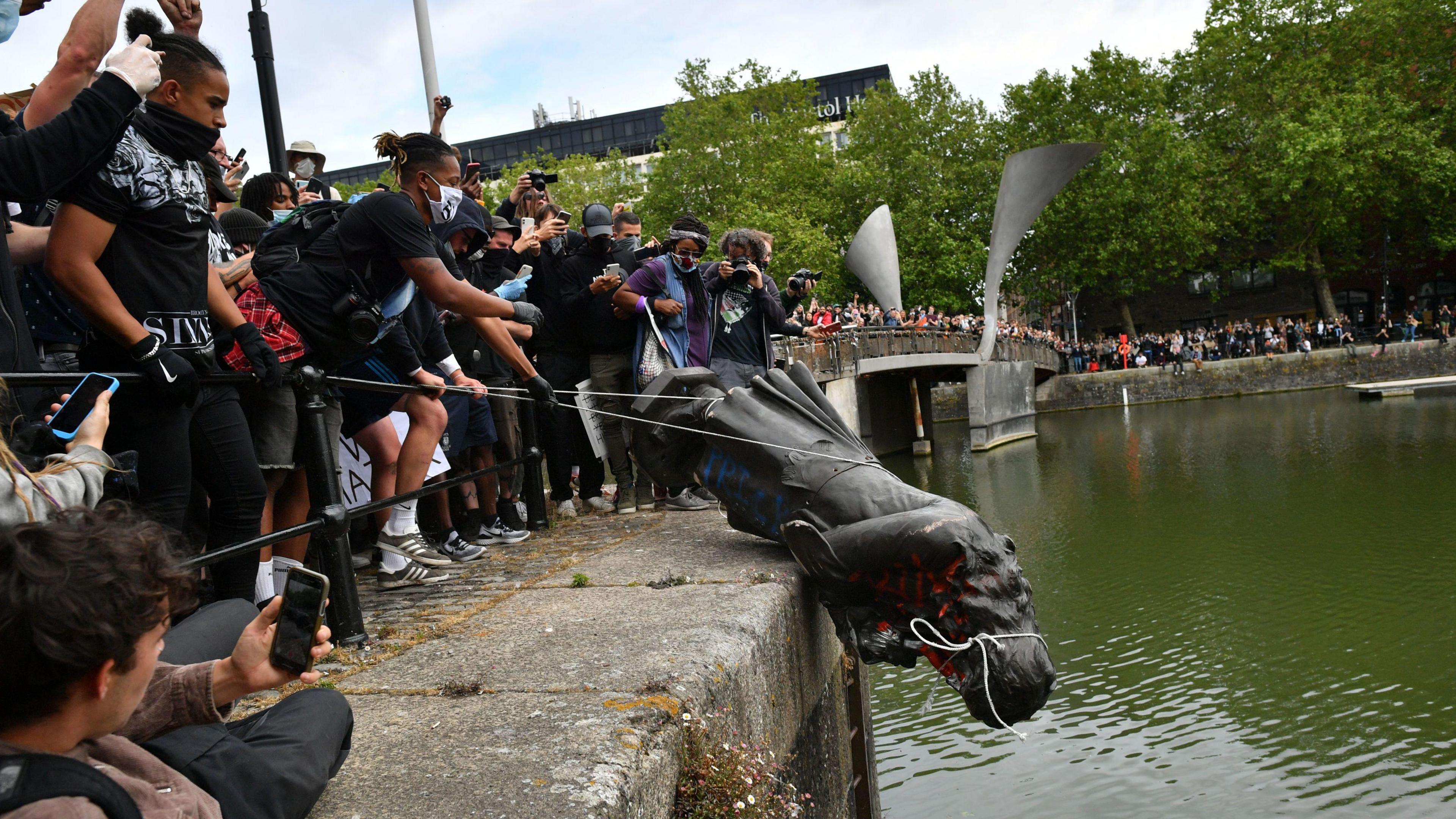
The statue was toppled into Bristol's harbour in 2020
The proposed wording of the plaque now reads: "On 13 November 1895, a statue of Edward Colston (1636 – 1721) was unveiled here.
"In the late 20th and early 21st Century, the celebration of Colston was increasingly challenged given his prominent role in the enslavement of African people.
"On 7 June 2020, the statue was pulled down during Black Lives Matter protests and rolled into the harbour.
"Following consultation with the city in 2021, the statue entered the collections of Bristol City Council’s museums."
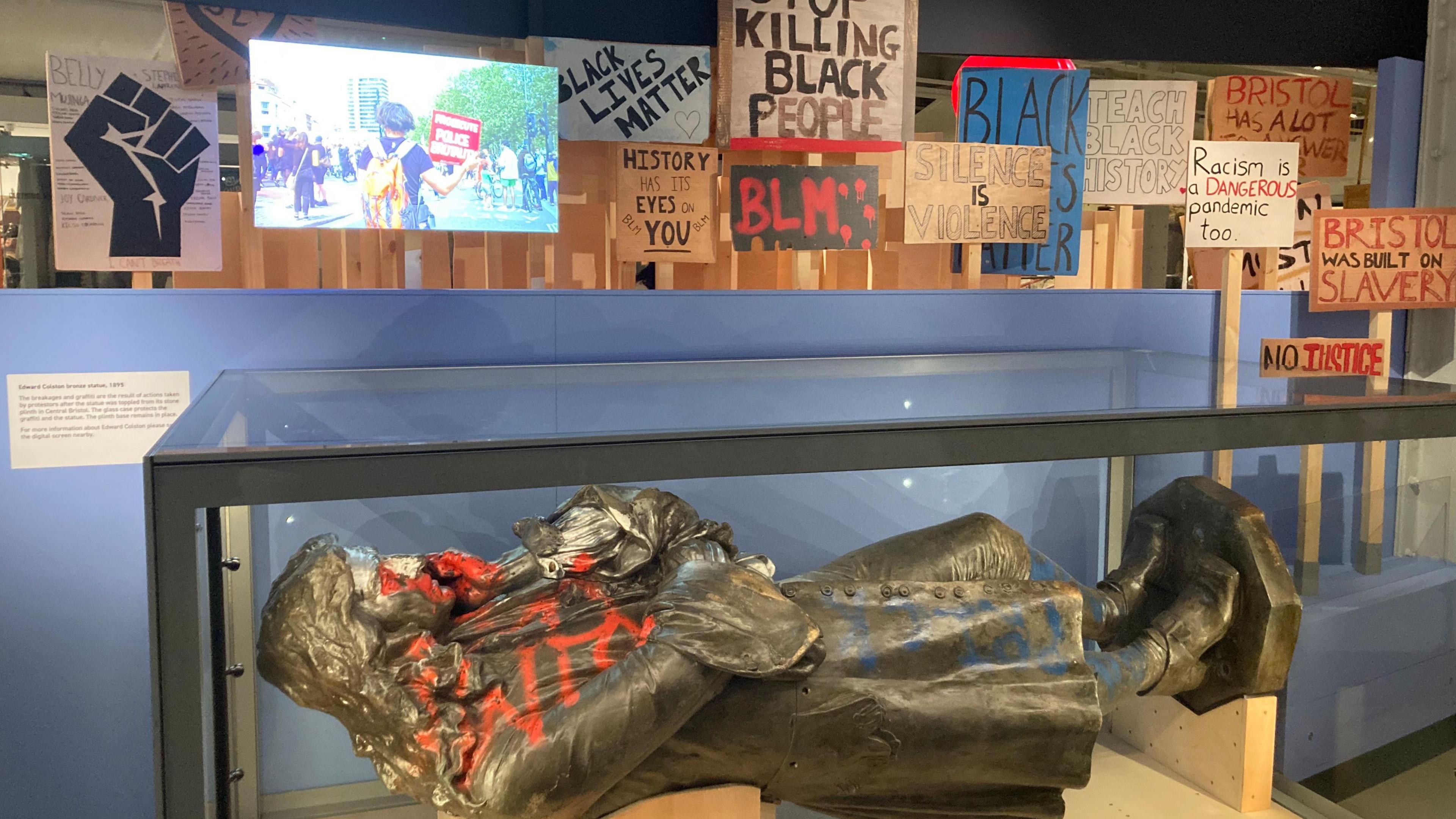
Edward Colston's defaced statue is currently on permanent display in a museum
Green councillor Paula O’Rourke said: “It’s not whitewashing history because historians, history books and people who tell the whole story will tell the story about how there was a plaque saying he was a benefactor and then that was taken down.”
Labour Fabian Breckels said: “History can be uncomfortable when you start to realise that cities including ours got rich on the back of enslavement of people.
“If we’ve now got agreed words, we need to put this to bed. We need to get this plaque up to explain what happened.”
The toppled statue is now on permanent display in Bristol's M Shed museum.
Get in touch
Tell us which stories we should cover in Bristol
Follow BBC Bristol on Facebook, external, X, external and Instagram, external. Send your story ideas to us on email or via WhatsApp on 0800 313 4630.
- Published16 November 2024
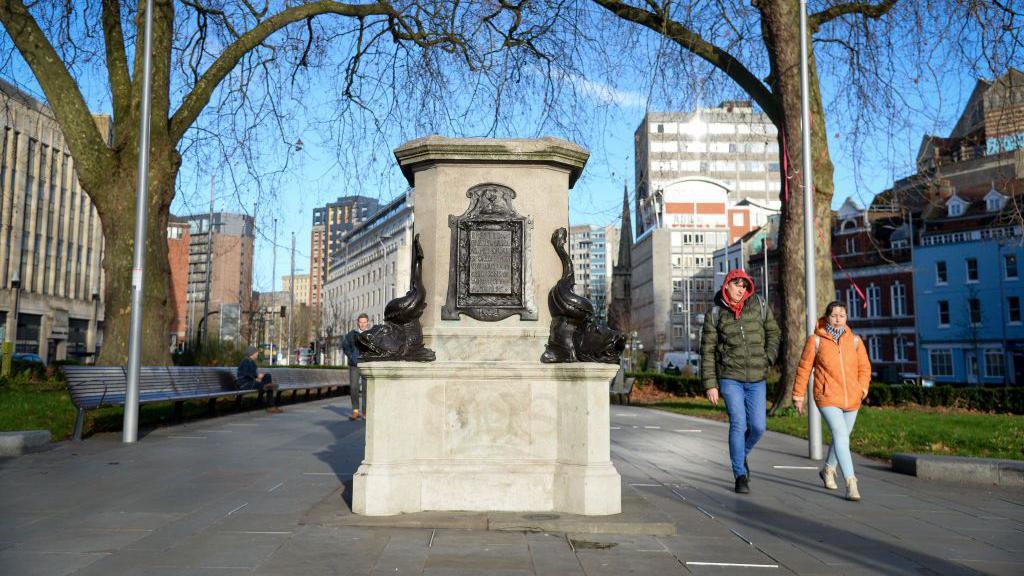
- Published8 June 2020
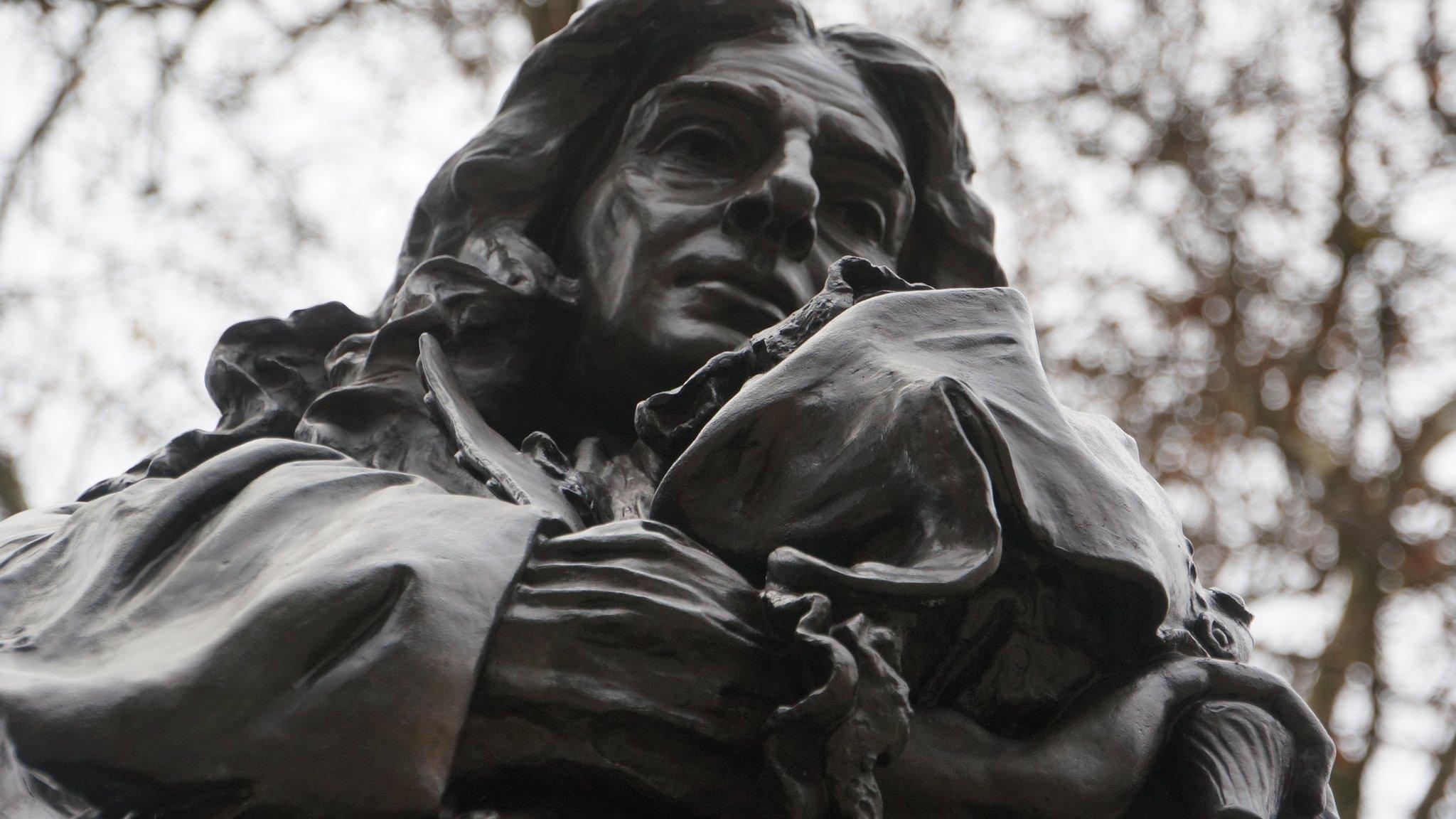
- Published3 April 2024
